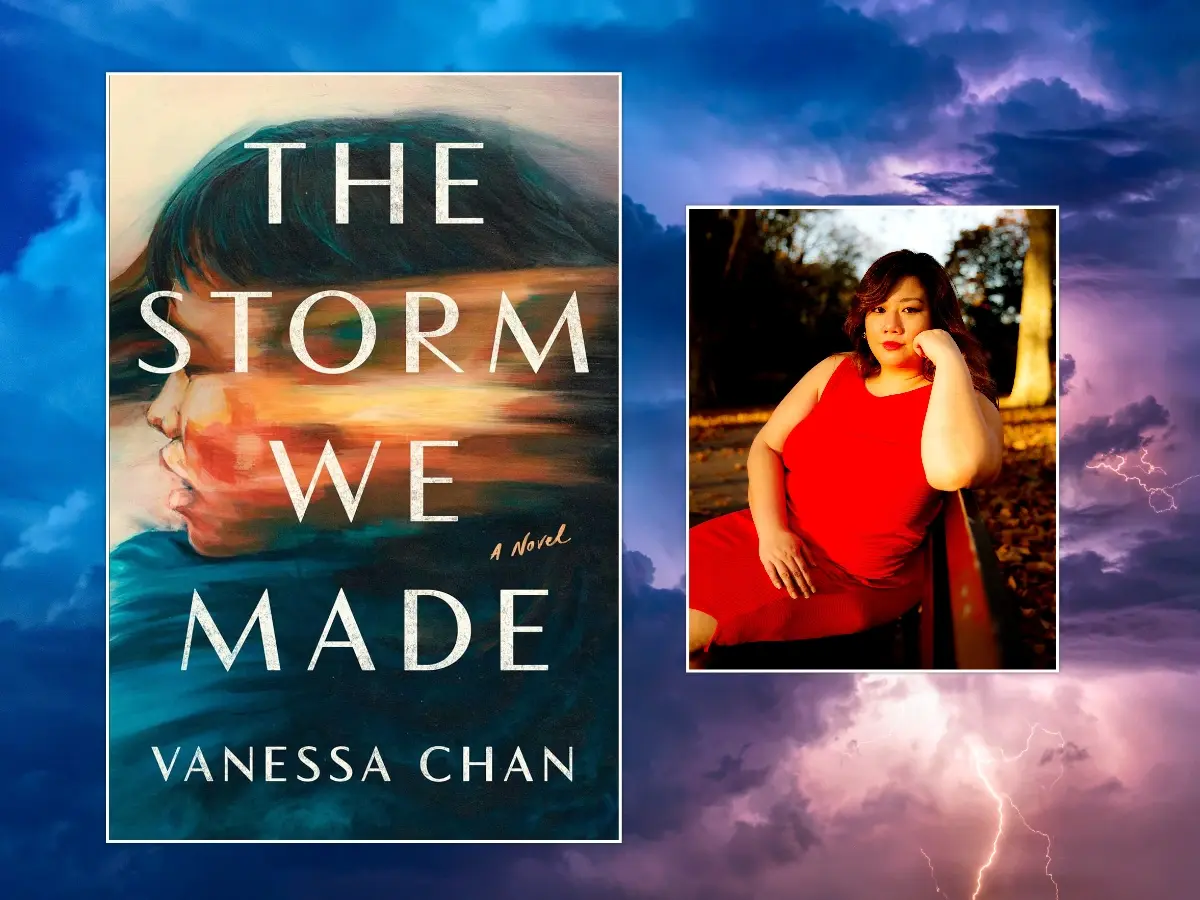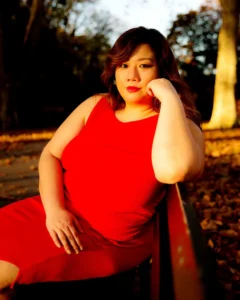The Storm We Made is a spellbinding, sweeping novel about a Malayan mother who becomes an unlikely spy for the invading Japanese forces during WWII—and the shocking consequences that rain upon her community and family.
In This Spotlight on The Storm We Made
About The Storm We Made
With a full cast of characters telling their stories, all orbiting the devastation wrought on a family caught up in war, this is a sweeping narrative, gorgeously written and emotionally resonant. Altogether, a resounding debut.
Malaya, 1945. Cecily Alcantara’s family is in terrible danger: her fifteen-year-old son, Abel, has disappeared, and her youngest daughter, Jasmin, is confined in a basement to prevent being pressed into service at the comfort stations. Her eldest daughter Jujube, who works at a tea house frequented by drunk Japanese soldiers, becomes angrier by the day.
Cecily knows two things: that this is all her fault; and that her family must never learn the truth.
A decade prior, Cecily had been desperate to be more than a housewife to a low-level bureaucrat in British-colonized Malaya. A chance meeting with the charismatic General Fuijwara lured her into a life of espionage, pursuing dreams of an “Asia for Asians.” Instead, Cecily helped usher in an even more brutal occupation by the Japanese. Ten years later as the war reaches its apex, her actions have caught up with her. Now her family is on the brink of destruction—and she will do anything to save them.
Spanning years of pain and triumph, told from the perspectives of four unforgettable characters, The Storm We Made is a dazzling saga about the horrors of war; the fraught relationships between the colonized and their oppressors, and the ambiguity of right and wrong when survival is at stake.
Excerpt from The Storm We Made
CHAPTER ONE: CECILY
Bintang, Kuala Lumpur
February 1945
Japanese-occupied Malaya
Teenage boys had begun to disappear.
The first boy Cecily heard of was one of the Chin brothers, the middle of five hulking boys with narrow foreheads and broad shoulders—they were Boon Hock, Boon Lam, Boon Khong, Boon Hee, and Boon Wai, but their mother called them all Ah Boon, and it was up to the boys to know which one she was calling for. Throughout British rule, the Chin boys were known for being rich and cruel. It was common to see them crowding in a circle behind the Chins’ gaudy brown-and-gold house. They’d be standing over a servant, one of the boys with a switch in his hand and all the boys with glints of excitement in their eyes as the switch made contact with the servant’s skin. When the Japanese arrived before Christmas 1941, the boys were defiant: they glared at the patrolling Kenpeitai soldiers, spat at the ones who chose to approach. It was the middle boy, Boon Khong, who disappeared, just vanished one day as though he had never existed. Just like that, the five Chin brothers were four.
Editorial Reviews for The Storm We Made
Publishers Weekly
Chan debuts with a dynamic if overstuffed family saga involving a Malayan mother who becomes a spy for Japan in the lead-up to Japan’s WWII invasion of the territory.
Cecily Alcantara’s life takes a new course in 1934, at a work party for her husband, Gordon, a middle manager for the colonial British administration. There, she meets the charming Shigeru Fujiwara, an agent for the Japanese Imperial Army who’s working covertly to overthrow the British. He lures Cecily with his talk of an Asia for Asians, and she begins handing over information stolen from Gordon’s desk. Her espionage activities continue for the next few years.
Now, in 1945, Cecily looks back on the unexpected consequences of the Japanese invasion, such as political repression and rampant disappearances of teen boys. When her 15-year-old son Abel disappears, Cecily blames herself.
Chan alternates Cecily’s story with chapters narrated by her children including Abel, who it turns out is being tortured in a labor camp. There’s also Jujube, who’s working in a teahouse patronized by rude soldiers, and eight-year-old Jasmin, who chafes at Cecily and Gordon’s insistence that she keep herself hidden in the basement so she won’t be caught and forced to become a “comfort girl.”
Though the short chapters make for brisk pacing, the characters wind up feeling underdeveloped amid all the various plot threads. Still, Chan convincingly portrays a family caught in the horrors of war.
Kirkus Reviews
In World War II Malaysia, a woman discovers her pre-war miscalculations have ruined her life.
In twin story streams beginning in the mid-1940s and 10 years earlier, Chan traces the experience of the Alcantara family: Gordon, Cecily, and their three children, Jujube, Abel, and Jasmin.
The opening section is set in Japanese-occupied Malaya (as Malaysia was then called) in 1945, where “teenage boys had begun to disappear.” On his 15th birthday their beloved Abel is among them. Cecily’s first reaction? “For a few minutes before the guilt took hold of her, it was a relief to see her terror realized. It had finally come to pass, and this was all her fault. She had caused this, all of it.”
The flashbacks that begin in the next chapter unfold her heart-wrenching story. Through her husband’s position with the British occupation, Cecily comes in contact with a man of two names. On the surface, he is Bingley Chan, a Hong Kong merchant. He begins a friendship with the Alcantaras, coming to their house to visit. Gordon is thrilled by his attention and has no idea that every night after he passes out, Chan, actually General Fujiwara of the Japanese Imperial Army, is working to become his wife’s lover and spymaster, telling her she is helping build “an Asia for Asians.”
As this background develops in the flashback sections, the horrors of 1945 unfold in parallel: Abel’s unspeakable torment in the labor camp, the perils of Jujube and even little Jasmin due to the abduction of girls to “comfort stations,” the almost unthinkable miseries of Cecily, who cannot free herself from her sexual obsession with Fujiwara even after he’s abandoned her and her life is in ruins.
The ultimate cost of her shortsightedness and self-delusion is excruciating, to the point that finishing the book is like waking up from a nightmare with relief that it didn’t really happen.
A chilling exploration of the costs of human weakness and desire, in a compelling and vividly wrought historical context.
Praise for The Storm We Made
The Storm We Made is poised to be a breakout debut of 2024.”—Kate Dwyer, Esquire
“Exceptionally brave. Heart-breaking, beautiful, and moving. Destined to be a classic. The Storm We Made is a celebration of stories that have been silenced or erased. Vanessa Chan writes with admirable power, confidence and grace. By confronting the horror of colonization and war, this book opens the pathway to peace and healing. A significant contribution to world’s literature.”—Nguyen Phan Que Mai, author of the international bestseller, The Mountains Sing and Dust Child
“The Storm We Made is brave, funny and immensely moving. One of the most powerful and confident debuts I’ve ever read. A storytelling star is born!”—Tracy Chevalier, author of the international bestseller, Girl with a Pearl Earring
“In Vanessa Chan’s spellbinding debut, one woman’s desire to change her destiny shapes the future of a colonized nation. Combining cinematic grandeur with nuanced storytelling, The Storm We Made offers the hidden history that only fiction can reveal: the everyday yearnings of people surviving a brutal occupation, children trying to make sense of the unspeakable, and the search for love. I’ll never forget this book.”—Jessamine Chan, New York Times best-selling author of The School for Good Mothers
“Devastatingly beautiful and extraordinary . . . Vanessa shines an evocative light on this piece of history. I’m going to be thinking about this one for a very long time.”—Jessica George, New York Times best-selling author of Maame
“Vanessa Chan’s The Storm We Made is a phenomenon unto itself. This is no mere debut, but rather the summoning of a story buried so deeply in a nation that it could only surface with a talent great enough to do it justice.”—Mira Jacob, author of Good Talk and The Sleepwalker’s Guide to Dancing
“Like the most dazzling historical fiction, THE STORM WE MADE etches intimate details on an epic canvas. Vanessa Chan’s characters face agonizing choices under the darkness of colonization and war, and yet she imbues them with an indelible spirit of resistance that never lets you forget the light. A fearless, gripping, morally complex story by a writer to watch.”—Dawnie Walton, national best-selling author of The Final Revival of Opal and Nev
“An intricate puzzle in which [Chan] deftly moves narrative pieces in time and among viewpoints.”—Booklist
About Vanessa Chan, Author of The Storm We Made
Vanessa Chan was born and raised in Malaysia. Her short stories have been published in Electric Lit, Kenyon Review, Ecotone, and more. She was the 2021 Stanley Elkin scholar at the Sewanee Writers Conference and has also received scholar awards to attend the Bread Loaf and Tin House writers’ conferences. The Storm We Made is her first novel.
You can find and follow Vaness Chan on her website, on Instagram, and on X.
Titles by Vanessa Chan
Other LitStack Resources
Be sure and check out other LitStack Spotlights that shine a light on books we think you should read.
As a Bookshop, BAM, Barnes & Noble, Audiobooks.com, Amazon, and Envato affiliate, LitStack may earn a commission at no cost to you when you purchase products through our affiliate links.



